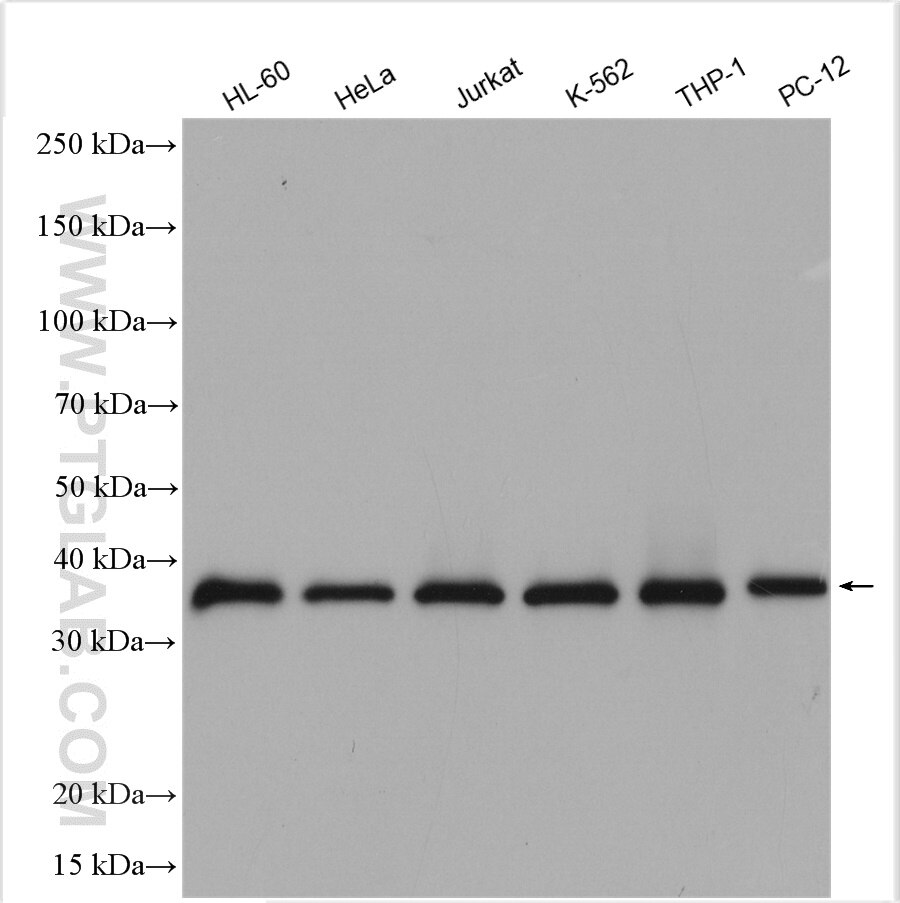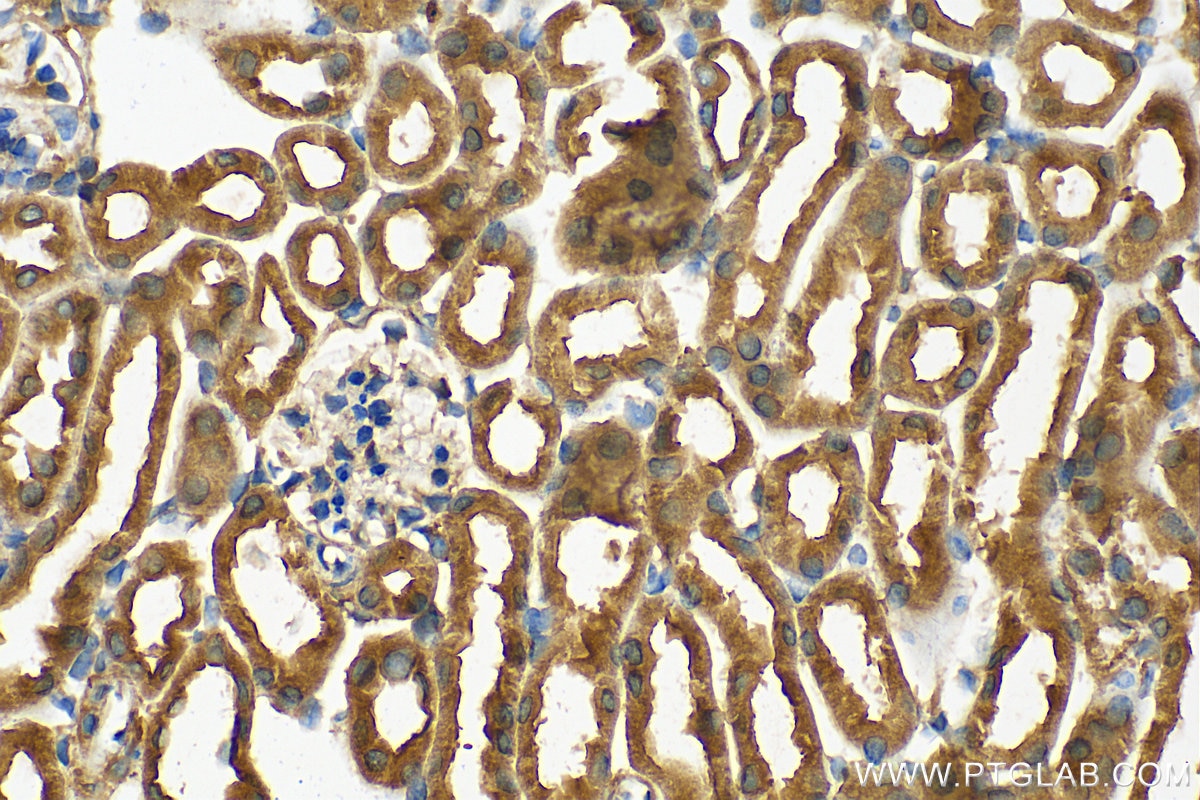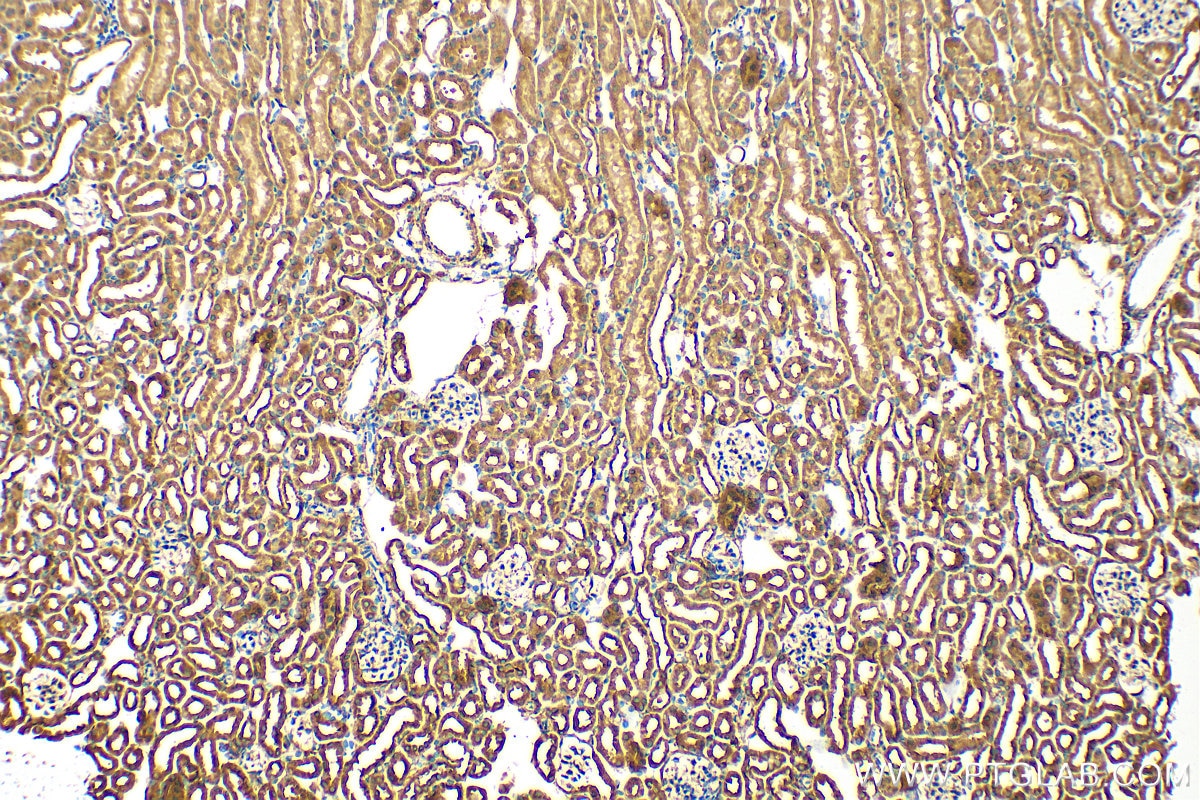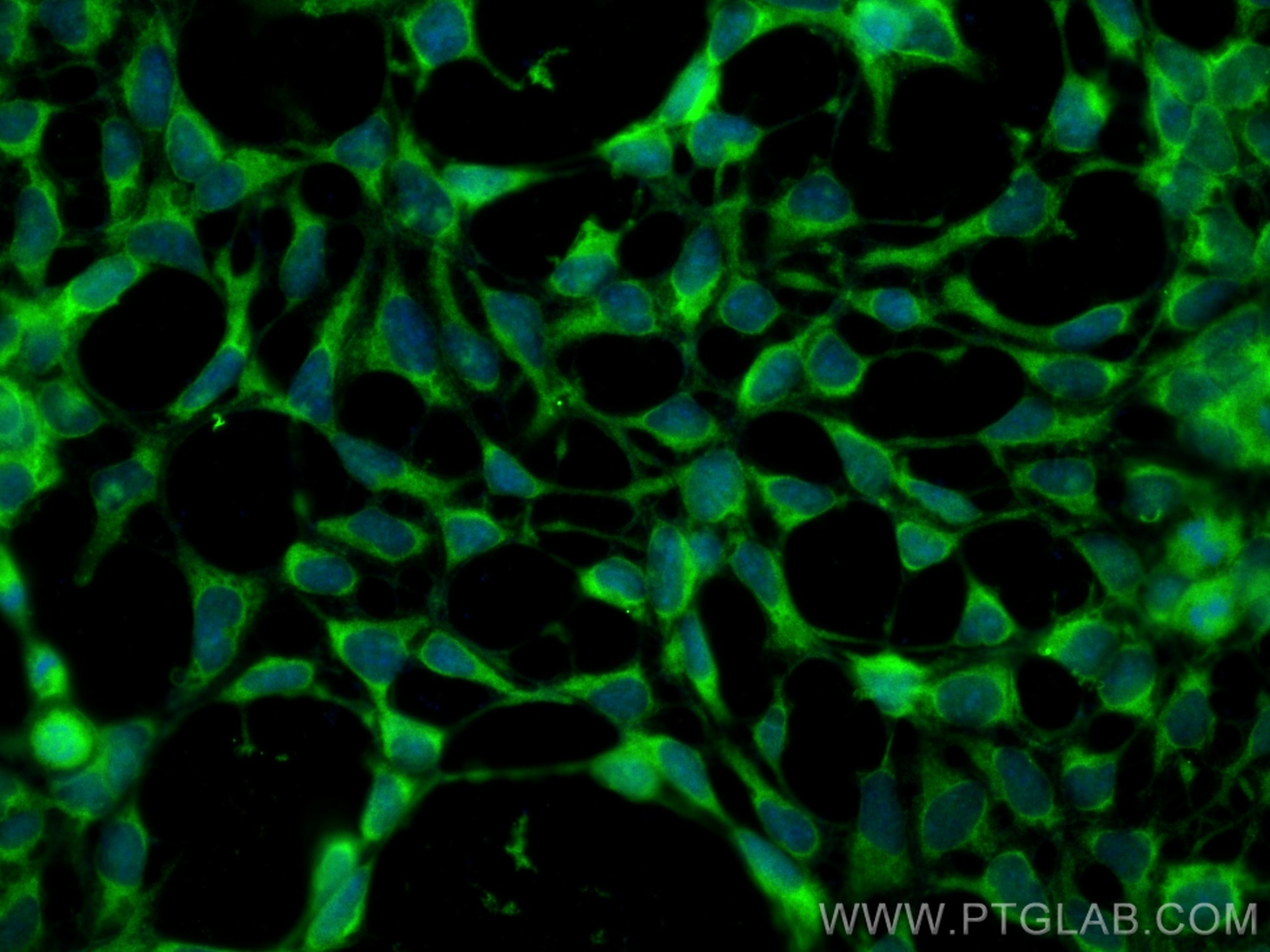Validation Data Gallery
Tested Applications
| Positive WB detected in | HL-60 cells, HeLa cells, Jurkat cells, K-562 cells, THP-1 cells, PC-12 cells |
| Positive IHC detected in | mouse kidney tissue Note: suggested antigen retrieval with TE buffer pH 9.0; (*) Alternatively, antigen retrieval may be performed with citrate buffer pH 6.0 |
| Positive IF/ICC detected in | HEK-293 cells |
Recommended dilution
| Application | Dilution |
|---|---|
| Western Blot (WB) | WB : 1:2000-1:12000 |
| Immunohistochemistry (IHC) | IHC : 1:500-1:2000 |
| Immunofluorescence (IF)/ICC | IF/ICC : 1:200-1:800 |
| It is recommended that this reagent should be titrated in each testing system to obtain optimal results. | |
| Sample-dependent, Check data in validation data gallery. | |
Published Applications
| KD/KO | See 1 publications below |
| WB | See 22 publications below |
| IHC | See 1 publications below |
| IF | See 1 publications below |
Product Information
11262-2-AP targets ATG3 in WB, IHC, IF/ICC, ELISA applications and shows reactivity with human, mouse, rat samples.
| Tested Reactivity | human, mouse, rat |
| Cited Reactivity | human, mouse, rat, pig |
| Host / Isotype | Rabbit / IgG |
| Class | Polyclonal |
| Type | Antibody |
| Immunogen | ATG3 fusion protein Ag1785 相同性解析による交差性が予測される生物種 |
| Full Name | ATG3 autophagy related 3 homolog (S. cerevisiae) |
| Calculated molecular weight | 36 kDa |
| Observed molecular weight | 36-40 kDa |
| GenBank accession number | BC024221 |
| Gene Symbol | ATG3 |
| Gene ID (NCBI) | 64422 |
| RRID | AB_2059234 |
| Conjugate | Unconjugated |
| Form | Liquid |
| Purification Method | Antigen affinity purification |
| UNIPROT ID | Q9NT62 |
| Storage Buffer | PBS with 0.02% sodium azide and 50% glycerol , pH 7.3 |
| Storage Conditions | Store at -20°C. Stable for one year after shipment. Aliquoting is unnecessary for -20oC storage. |
Background Information
Autophagy is a lysosome-dependent conserved catabolic process in response to various stresses, such as oxidative stress and ischemia, for the degradation and recycling of aged or dysfunctional intracellular components and damaged organelles. A large group of autophagy-related genes (ATGs) have been identifed as essential drivers in diferent stages of autophagy. Autophagy-related 3 (ATG3), one of the autophagyrelated gene family members, serves as an E2-like enzyme contributing to the conjugation of microtubule-associated protein light chain 3 (LC3) to lipid phosphotidylethanolamine (PE). ATG3 plays a signifcant role in the regulation of autophagy, viability, and death.
Protocols
| Product Specific Protocols | |
|---|---|
| WB protocol for ATG3 antibody 11262-2-AP | Download protocol |
| IHC protocol for ATG3 antibody 11262-2-AP | Download protocol |
| IF protocol for ATG3 antibody 11262-2-AP | Download protocol |
| Standard Protocols | |
|---|---|
| Click here to view our Standard Protocols |
Publications
| Species | Application | Title |
|---|---|---|
Cell Death Dis Cytoplasmic fragment of CD147 generated by regulated intramembrane proteolysis contributes to HCC by promoting autophagy. | ||
Chemosphere Genome-wide transcriptional profiling and functional analysis reveal miR-330-MAPK15 axis involving in cellular responses to deoxynivalenol exposure. | ||
Front Cell Dev Biol Aquaporin-8 transports hydrogen peroxide to regulate granulosa cell autophagy | ||
Front Immunol Toxoplasma gondii CDPK3 Controls the Intracellular Proliferation of Parasites in Macrophages. | ||
Oncotarget Upregulation of the lncRNA Meg3 induces autophagy to inhibit tumorigenesis and progression of epithelial ovarian carcinoma by regulating activity of ATG3. | ||
Ecotoxicol Environ Saf Exposure to DEHP induces testis toxicity and injury through the ROS/mTOR/NLRP3 signaling pathway in immature rats. |



